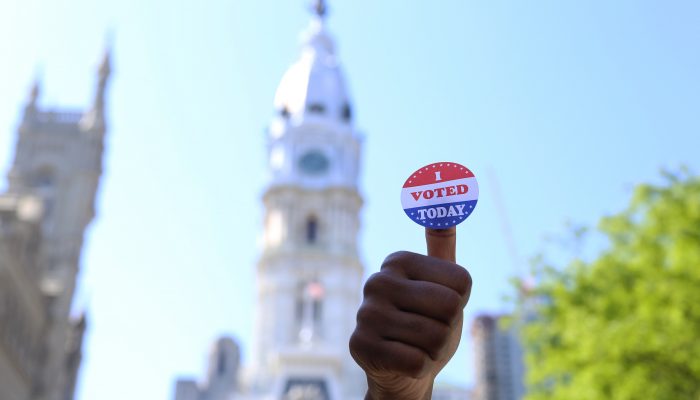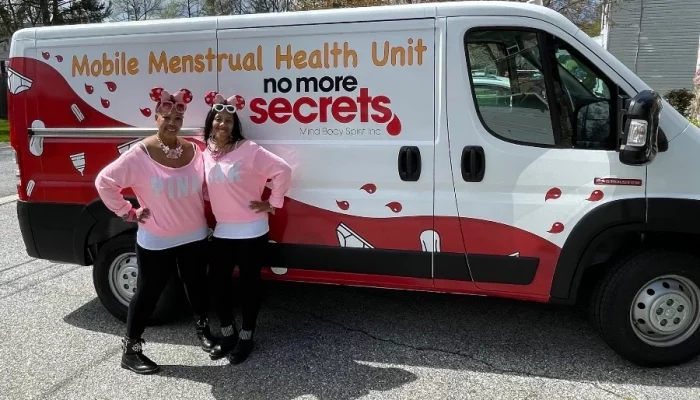This blog post was written by Jovida Hill, Executive Director, Mayor’s Office of Engagement for Women
I have been waiting to exhale for four years. I have been waiting my entire life for a woman to be elevated to the highest office in the nation. I have been waiting to catch my breath after a 2016 stomach punch so painful I cried for days. No antacid could cure the nauseous feeling in my stomach. Over the past four years, we have endured a relentless stream of racist, sexist, misogynist, hateful and divisive comments coming from some of the top leaders—including the top leader—of our country. The news of a Biden-Harris historic victory allowed us to once again take in a fresh breath of hope.
Even sweeter was knowing it was Philadelphia that put the Biden-Harris ticket over the top. Within minutes after MSNBC put PA in the winning column, I could hear victory shouts and car horns blowing. I looked out my window as folks let out cheers as the news spread. Social media blew up with shares of spontaneous block parties. It was as if Martha and the Vandella’s “Dancin’ in the Streets” was on everybody’s playlist. It was a joyous payoff for the long lines at early voting locations. It was a thank you gift to the army of volunteers canvassing neighborhoods reminding folks to vote. It was a reward for a job well done by Millennials and first-time Gen Z voters, and for the hundreds of hours logged by volunteer phone bankers. In the middle of an unprecedented pandemic, no less.
Philadelphia, still raw from the disproportionate impact of COVID-19 on Black and Brown people, with fresh wounds from the deaths of George Floyd, Breonna Taylor, and Walter Wallace, Jr., and a summer of discontent, finally got a reprieve from our communal mourning. The Biden-Harris victory gave us something to lift our spirits if only briefly.
It should not go unnoticed that Vice President-Elect Kamala Harris chose to wear a white pantsuit when she addressed the nation. It was a powerful symbol of the historic nature of being selected as Joe Biden’s running mate. White, the color worn by suffragists more than a hundred years ago, celebrated their determination and sacrifice to bring us to this moment. Their efforts materialized in the passage of the 19th Amendment. It wouldn’t be until the Voting Rights Act of 1965 that African Americans would be assured of this precious right. Indigenous women would have to wait until 1948. Asian American women would be denied the right to vote until 1952. Native Hawaiian women didn’t get the right to vote until 1959. And in most states, incarcerated people still cannot vote. The march to the polls has been a long one. It has been an even longer march to the White House.
This past year the Philadelphia Commission for Women has been commemorating the centennial of the 19th amendment with our civic engagement initiative Suffrage.Race.Power. Unerased . This national initiative goes beyond the act of voting and elevates the voices of Black women whose leadership often goes unnoticed, unheralded, and erased. We raise the voices of Black women of the past and present as a way of changing the narrative of how we view democracy. Vice-President Elect’s inspiring speech recognized “…the generations of women — Black Women. Asian, White, Latina, and Native American women throughout our nation’s history who have paved the way…” she told us.
While we cherish this moment in history and celebrate the first woman elected to the office of Vice President–the first Black woman–the first south Asian woman, let us not forget that racism did not die with the election of Barack Obama as the first Black president. Nor should we expect that sexism and patriarchy are behind us with the election of Kamala Harris. Our democracy will be strengthened when we acknowledge that gender, racial and economic equity are inextricably tied. There is not one without the other. But at least today, we can be gleeful about the possibilities.




